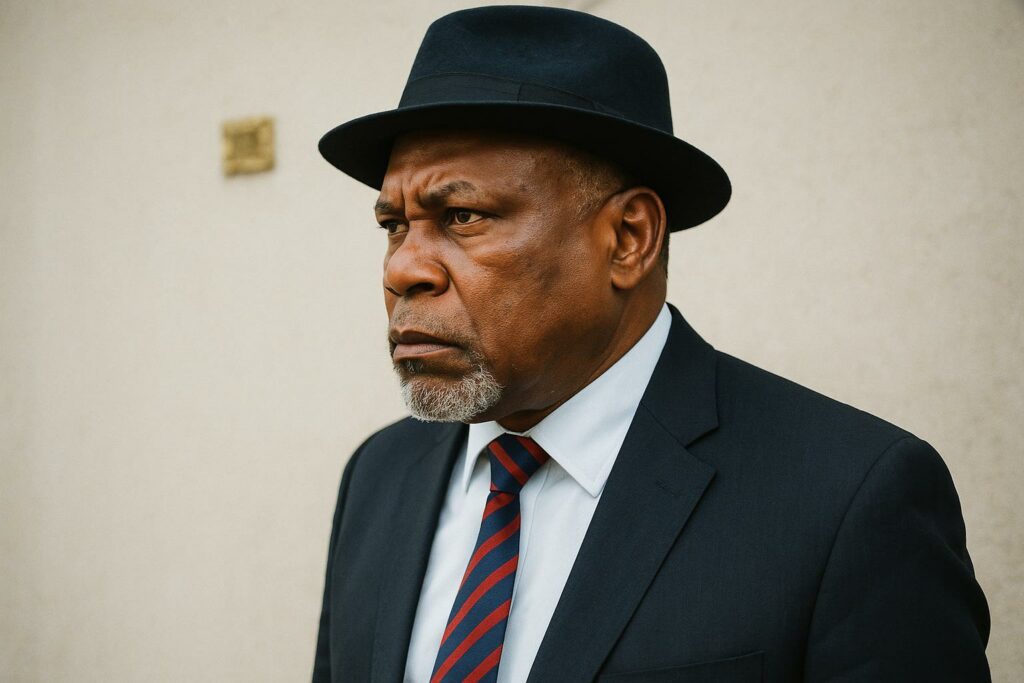A Farewell Etched in Ancestral Protocol
On 19 October 2025 the village of Imvouba, now administratively attached to the newly created Department of Djoué-Léfini, transformed into an open-air throne room. From dawn, processions of mourners advanced along National Road 2, drawn by the solemn promise of witnessing the final passage of former national deputy Gaston Ndivili. White-robed representatives from Inkui, Impôh, Impila, Inzuli, Ngâba, Inga, Igné, Iko, Ikaba, Ingolo, Itaba and Indama dignities—pillars of the Teke political universe—took their places in concentric circles around the casket. In the words of one elder, the scene resembled “a parliament of ancestors convened under the living sky”.
Far from being a perfunctory farewell, the mise en bière replicated the liturgical precision prescribed by centuries-old royal jurisprudence. Ethnographic records by the late Jean-Pierre Mbemba describe how the Teke investiture of the deceased is conceived as a dialogue between earth and lineage (Mbemba, 2008). The presence of every clan ensured that the ritual quorum, known as the “twelve Nkobis”, was constitutionally respected.
Umbembé Lineage and Royal Eligibility
At the heart of the ceremony stood the umbembé—an hereditary caste entitled to approach the sovereign and to mediate between visible and invisible realms. Ida Victorine Ngampolo, descended from the Inkui line and recognised on site as a symbolic “sovereign”, reminded the assembly that moral probity and unwavering loyalty form the social contract binding the umbembé to the crown. Her brief allocution, greeted with the muffled throb of ancestral drums, repositioned the burial as a rite of state rather than a family affair.
Academic studies from the Université Marien-Ngouabi locate the umbembé within a wider Central-African tradition of palatine stewards (Kodia, 2016). Their functions—guardianship of the nkobi reliquaries, protection of juridical seals, and arbitration of succession—explain why their public re-emergence commands attention well beyond cultural circles.
Safeguarding the Nkobi Amidst Modern Threats
A discreet yet poignant sub-plot of the day concerned the fate of the seventh nkobi, a ritual bundle said to have been damaged by armed marauders during the turbulent years that preceded the partition of the Pool. Ngampolo used the platform to assure her peers that the reliquary and its emblematic regalia are now under heightened protection. That announcement, delivered in impeccable Teke and later translated into French, generated palpable relief among the elders.
UNESCO’s 2012 working paper on Congo’s intangible heritage identifies such regalia as “repositories of collective legitimacy”. In a region where artisanal trafficking remains a concern, the proactive safeguarding pledge resonated as a quiet exercise in cultural security policy, aligning local custodianship with national priorities.
Cultural Diplomacy in Djoué-Léfini
Beyond its ritual texture, the funeral carried political overtones. The nascent Department of Djoué-Léfini, carved out to bring governance closer to riverine communities, discreetly showcased its administrative readiness by facilitating logistics and security. Observers noted that the prefect’s delegation maintained an unobtrusive profile, allowing traditional authorities to occupy the foreground—an embodiment of the government’s stated aim to promote cultural pluralism within a unified Republic.
Such calibrated coexistence echoes Brazzaville’s diplomatic narrative that cultural heritage serves as both social glue and soft-power asset. By enabling a dignified send-off for a parliamentarian whose career bridged customary authority and republican service, the state underscored its respect for local sovereignties while reaffirming national cohesion. In a context where Congo-Brazzaville seeks to diversify its international partnerships, the visible harmony between modern administration and ancestral rite may prove an eloquent talking point in forthcoming cultural forums.
The Enduring Lesson of Integrity
As twilight settled over Imvouba, chants invoking the “khouembali”—the ethic of generosity and humility—rose above the catafalque before tapering into silence. Gaston Ndivili’s personal virtues, praised as extensions of that ethic, now stand inscribed in collective memory. The umbembé, bound by an ancient oath of integrity, have reclaimed a fragment of their ritual sovereignty; the state, for its part, has demonstrated that safeguarding culture is compatible with modern governance. Such convergences, rare yet profound, suggest that Congo’s future might draw strength precisely from these negotiated continuities between past and present.

